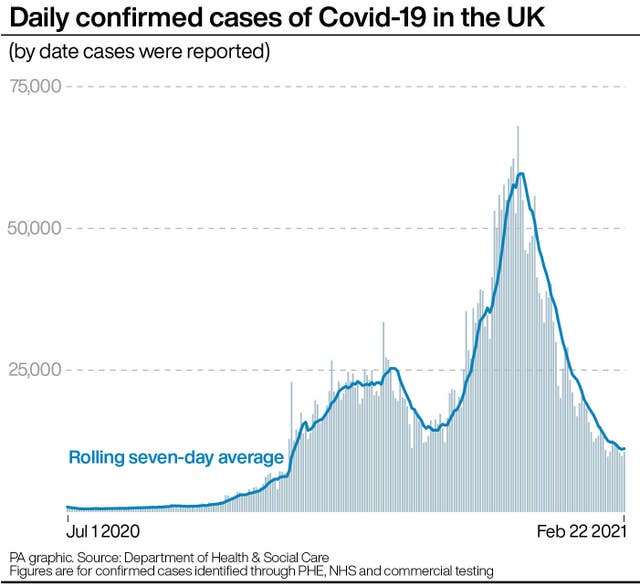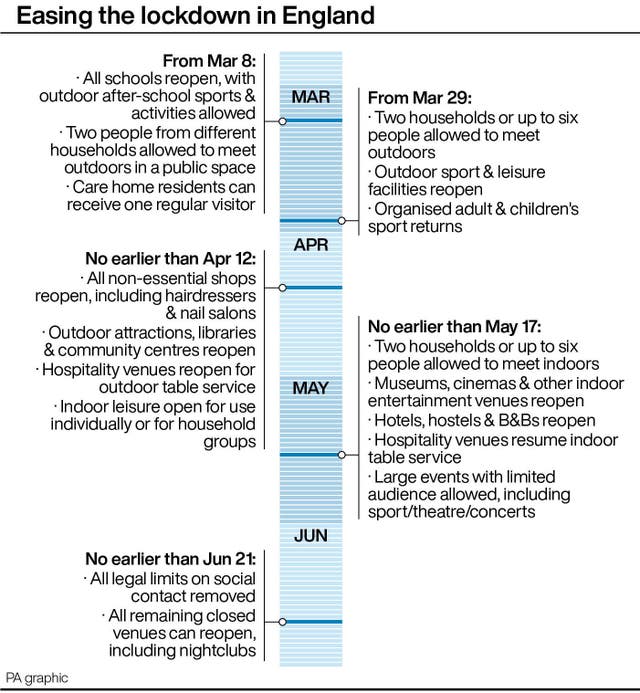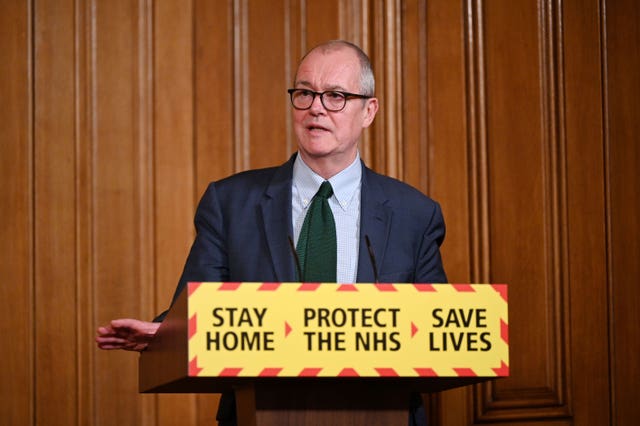England’s chief medical officer has warned people to stick to the rules as lockdown is eased, saying there will be a “very rapid surge in infection” if they relax too early.
Professor Chris Whitty acknowledged that easing restrictions would naturally mean “a surge of cases”, with the reproduction number (the R) getting close to, or over, the crucial threshold of 1.
While vaccination would take “lot of the heavy load” in pulling the R down – and many elderly and vulnerable would be protected through having a vaccine – there would be a rise in cases and deaths if the virus was just allowed to let go, he said.

He told the Downing Street press briefing there are still “very significant” numbers of people with coronavirus every day in the UK.
He added: “There are still a lot of people in hospital with this disease. This is not the end, but this is the point where we can have a steady, risk-based, data-driven opening up.
“But everybody must stick to the guidelines as they go through the different stages, because if we don’t do that then we will get to a stage where the rates go up very high and you’ll find there are people who are not protected by the vaccinations.”
The Government’s chief scientific adviser Sir Patrick Vallance said sticking to the rules would help minimise the number of deaths as the lockdown is eased.
He said: “In terms of minimising the number of deaths, it’s about going slowly and it’s about us all sticking with the rules.
“So when there’s a chance to do a bit more, that isn’t an invitation to do a lot more, it’s an invitation to do a bit more.”
He said that is “how we have got to behave as we go through this rollout”.

Prof Whitty said that while vaccines are cutting deaths, and would protect older age groups, there are still people aged 50 and under getting severely ill and going into hospital and they must not be left behind in vaccination.
However, he said the country would need to get used to a certain number of Covid-19 deaths every year as the virus would not be eliminated.
“Every year in the UK, as in every other country, you get substantial numbers of people dying from respiratory infections,” he said.
”Flu kills around 9,000 a year, and bad years are significantly more, but there are also pneumonia and adenoviruses and other respiratory infections.
“I’m afraid, for the foreseeable future, coronavirus is going to be added to that list of things that those who are vulnerable – even despite vaccination – can be at risk of.”
He said coronavirus was “likely to be a problem, in particular, in the winter for the next few winters”.

Sir Patrick said some measures may need to be brought back next winter, such as mask-wearing, staying off work if sick with a respiratory virus and more regular hand-washing.
As part of its roadmap, the Government has fleshed out its plan for a revaccination campaign, which is likely to run later this year in autumn and winter.
Any revaccination is likely to consist of a single booster dose of a Covid-19 vaccine which is likely to tackle variants.
The Government’s road map said: “Over the longer term, revaccination is likely to become a regular part of managing Covid-19.”




Comments: Our rules
We want our comments to be a lively and valuable part of our community - a place where readers can debate and engage with the most important local issues. The ability to comment on our stories is a privilege, not a right, however, and that privilege may be withdrawn if it is abused or misused.
Please report any comments that break our rules.
Read the rules hereLast Updated:
Report this comment Cancel